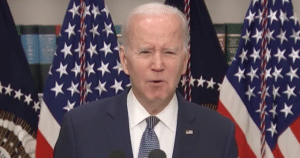Noem Faces Tough Questions in DHS Secretary Hearing
The confirmation hearing for Kristi Noem, South Dakota's governor nominated as the Department of Homeland Security secretary, put the spotlight on the alarming issue of undocumented children going missing under the current administration. During the session on Friday, Democratic Senator Richard Blumenthal pushed Noem to engage with efforts to reunite separated young migrants at the border, while Noem raised concerns about records of children alleged to be missing since President Biden took office.
The hearing highlighted pressing concerns regarding border policies, accountability, and the safeguarding of migrant children, with heated discussions on past and present administration strategies.
Noem, a Republican, arrived at the hearing with the formidable task of defending her stance and clarifying her plans if confirmed as DHS secretary. Reflecting on past policies during the Trump administration, Noem insisted on reframing the controversial family separation approach as a "zero tolerance" policy focusing on strict law enforcement at the borders. She clarified, "the Trump administration never had a family separation policy," emphasizing that maintaining legal boundaries was paramount.
Missing Migrant Children Under Biden
However, the focus soon turned to the present administration. Noem expressed alarms about over 300,000 children who have allegedly gone missing during President Biden's term. This figure surfaced concerns that extended beyond partisan debates, directly impacting the health and safety of vulnerable youth.
According to an official report from the Office of Inspector General, at least 32,000 migrant children have been unaccounted for after being released from government custody since 2019. The report further alarmingly noted that 291,000 children never received court dates, which significantly increased their vulnerability to exploitation within the country.
In response to the aforementioned developments, Senator Blumenthal pressed Noem for her dedication to mending family separations that remain unresolved. He stated, “There’s still 1,000 children who are separated and waiting to be reunited.”
System Challenges and Risks
Noem’s replies indicated her concern for both past and future responsibilities. She stated intentions to prioritize keeping migrant families connected and to address surging trafficking and drug crises that may ensnare children. “I want to stop that,” Noem asserted, referencing her position towards locating missing children and further preventing any such issues. Blumenthal urged for a shift beyond partisan labels, stressing the urgent humanitarian interests still at stake.
The complexity of the immigration system under the Biden administration surfaced when it was revealed that the Department of Health and Human Services (HHS) had managed to reunite only a third of unaccompanied minors with their biological families. The remaining children posed further concern; they lived with relatives or sponsors, some possessing unsettling pasts, which cast doubt on the safety and appropriateness of these arrangements. This has fueled accusations by opponents like Republican Sen. Bill Cassidy, who suggests procedural failures are responsible for new avenues of exploitation.
Noem’s Emphasis on Comprehensive Reform
Amid a deeply divided political landscape, Noem seemed determined to focus on comprehensive reform that transcends political blame games. "Keeping families together is critically important," she reiterated, ensuring that proposals target the eradication of illegal trafficking and enhance children’s security in the U.S. and internationally.
The contentious nature of these hearings underscores the necessity of addressing immigration infrastructure in a manner that upholds human rights and enforces effective regulatory measures. As the session drew to a close, a balanced reflection on past policies and current challenges reinforced the narrative of an immigration system requiring reformative approaches and collective action.
A Crossroads in Policy Decisions
The tension between accountability for past policies and the current administration's challenges presents a mutable political climate.
Given the complexity of these issues, the new leadership within DHS, if approved, faces a crucial juncture requiring resolve and empathy to reform immigration processes while ensuring child safety.
Noem’s commitment towards tracking down lost children while maintaining public safety, structured under lawful enforcement, may define her potential term as an opportunity for change. While partisan contention continues to color debates, the priority remains the welfare of at-risk minors, shrouded amidst administrative and political dynamics.




